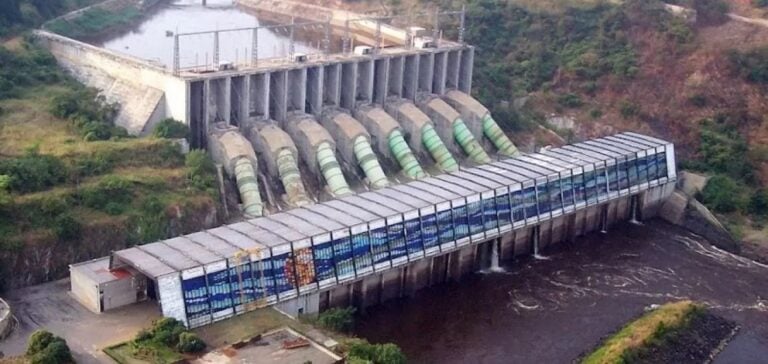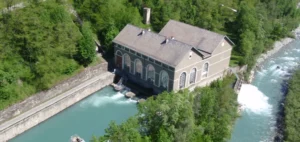The government of the Democratic Republic of Congo (DRC) has decided to fully finance the Grand Katende hydropower plant. With an investment of 280 million dollars, this project aims to generate 64 MW of electricity to support economic and social development in the Kasai region.
National funding to revive the project
The project, initiated in the 1960s, has long been stalled due to a lack of external financing. Despite the announcement in 2023 of a 180 million dollar credit line by India’s Exim Bank, the released funds were deemed insufficient to advance the work.
Facing these challenges, Congolese authorities have adopted a self-funded approach. The government structured the project in three phases, allowing immediate work commencement while generating revenue for subsequent stages.
Expected economic and social impacts
The first phase, scheduled over 24 months, will produce 16 MW of electricity to supply the cities of Kananga, Mbuji-Mayi, and Tshimbulu. Additionally, the project includes the construction of 130 km of power lines between Kananga and Mbuji-Mayi and 30 km to connect Kananga to Bukonde.
These infrastructures are expected to stimulate the local economy by facilitating access to reliable energy. The construction phase is also projected to create thousands of jobs.
A project marked by structural challenges
The project’s history has been marked by repeated interruptions. In 2015, the work was suspended after 55% of the civil engineering work had been completed and 75% of the electrical equipment had been acquired. Some of the equipment, stored in various locations, has been damaged or stolen, necessitating significant repairs before resuming work.
An audit conducted in 2021 highlighted these challenges. However, the current revival, fully funded by the Congolese state, marks a significant shift in managing strategic infrastructure projects in the DRC.
A vision for energy independence
The decision to self-finance Grand Katende illustrates a political will to reduce external dependency for critical projects. Although the timeline for completing the full 64 MW capacity has not yet been announced, Congolese authorities emphasize that this approach will ensure faster and more flexible implementation.






















